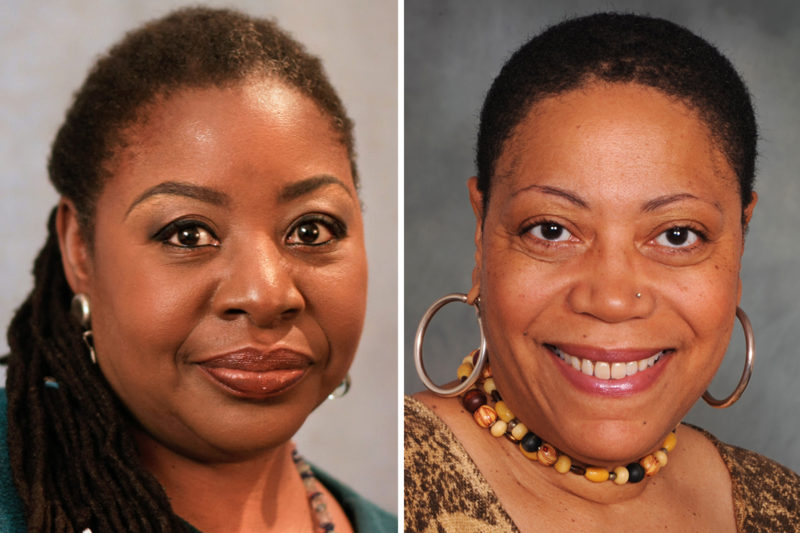Calling In Rather Than Calling Out: When #MeToo Meets Reproductive Justice
As two of the co-creators of the transformative reproductive justice framework in 1994, we have grave concerns around how the reproductive justice theory and framework is being applied in this unfolding crisis and the implicit human rights violations.

Last week, abortion rights activist Candice Russell published allegations of sexual coercion concerning abortion provider Dr. Willie Parker. The following day, Parker wrote a response piece denying the allegations. Since then, the reproductive health, rights, and justice movements have been in turmoil.
We are sexual assault and incest survivors calling in our movements, to ask that we draw on our collective wisdom and employ restorative and transformative justice processes during this troubling situation.
We believe survivors. Many survivors of sexual violence also experience reproductive oppression, and these are not issues that should be dismissed or understated. Nor can they be resolved without careful consideration, difficult dialogues, and patience with each other.
We are in a defining moment. Our opponents are a generation ahead of us in attacking our human rights because they have worked for years to weaken the reproductive health, rights, and justice movements. There have been numerous calls for reproductive justice in this moment. As two of the co-creators of the transformative reproductive justice framework in 1994, we have grave concerns around how the reproductive justice theory and framework is being applied in this unfolding crisis and the implicit human rights violations.
While we often grapple with the intersections of sexual violence and reproductive justice, as a movement we do not have an established process for investigating situations such as these. Many people are also not using a measured approach. What is painfully evident is that our lack of process is fracturing the movement, often along racial and generational lines, through a dangerous collision of #MeToo with reproductive justice.
We must use this critical movement moment to call each other in: to not let ourselves become divided and overwhelmed when friendships compromise justice. The best way to do that is to proceed with integrity to keep the reproductive justice movement from splintering and to leverage our power in the face of devastating assaults on our values, determination, and resilience.
If we believe in human rights and understand that reproductive justice is a pathway to achieve them, survivors have the right to speak their truth, and the accused must be afforded the right to speak in turn. However, the allegation and response represent only the first step in what needs to be a formal process of determining guilt or innocence. What has occurred is trial and judgment in the court of public opinion. Historically, the court of public opinion has never been a fair process, especially for people of color. Survivors must be able to name perpetrators without fear of retribution. At the same time, the process cannot end with the allegation.
Article 10 under the Universal Declaration of Human Rights states that every individual is “entitled in full equality to a fair and public hearing by an independent and impartial tribunal, in the determination of his rights and obligations and of any criminal charge against him.” Article 11.1 states that every individual “charged with a penal offence has the right to be presumed innocent until proved guilty according to law in a public trial at which he has had all the guarantees necessary for his defense.” To not adhere to these human rights standards does not achieve reproductive justice for all parties involved and puts the movement on a perpetual collision course with the #MeToo movement.
Reproductive justice is grounded in both the human rights framework and Black feminist thought. If the movement for reproductive justice is as strong as we believe it to be, it must be able to withstand a process for excavating and holding multiple truths as both of these theories demand. That truth may cause us to see leaders we have long admired and respected to be marred by misconduct, or to be found not guilty as accused.
Our movement must be able to stand firm in a process that seeks to unearth the truth, even when that process includes asking questions of and hearing narratives from the survivor, the accused, and any others who may have vital information. However, when we close the space to seek clarity, we create an atmosphere where individuals are silenced. They may fear being accused of not being supportive of survivors; they may fear they could lose their jobs, damage their reputations, or risk funding to their organization if they are a principal. That is the antithesis of reproductive justice.
Many conversations and meetings will be held in the future to navigate a pathway for justice. Those conversations must include a way for all parties to speak their truths and a process executed with integrity. This will undoubtedly require exposing the strengths and weaknesses of the RJ movement.
The healing process will not be easy, but overcoming unimaginable odds is what has brought us this far and will propel our movement into a stronger, more transparent, and more inclusive future.
